TABLE OF CONTENTS
An easy cannabis honey recipe can become apart of your go to edibles recipes. Cannabis can be infused with honey, just like it can be infused with oils such as coconut oil, olive oil, and butter. In this case, cannahoney is what we get.
Cannabis-infused honey is an excellent ingredient for enjoying cannabis in your tea, oatmeal, cornflakes, and the likes.
On the other hand, Cannabutter has provided a perfect chance for marijuana lovers to enjoy baked goods and edibles, such as gummies and lollies.
Lovers of cannabis will most likely welcome the idea of licking honey with cannabis in it. In this article, we'll go over what it takes to make cannabis-infused honey.
If you're already familiar with making cannabis-infused butter or cannabis-infused coconut oil, then you must already be conversant with most of the process of making cannahoney.
The procedure is simple, straightforward, and can be made using a crockpot at home. The instructions provided in this guide will get you started.
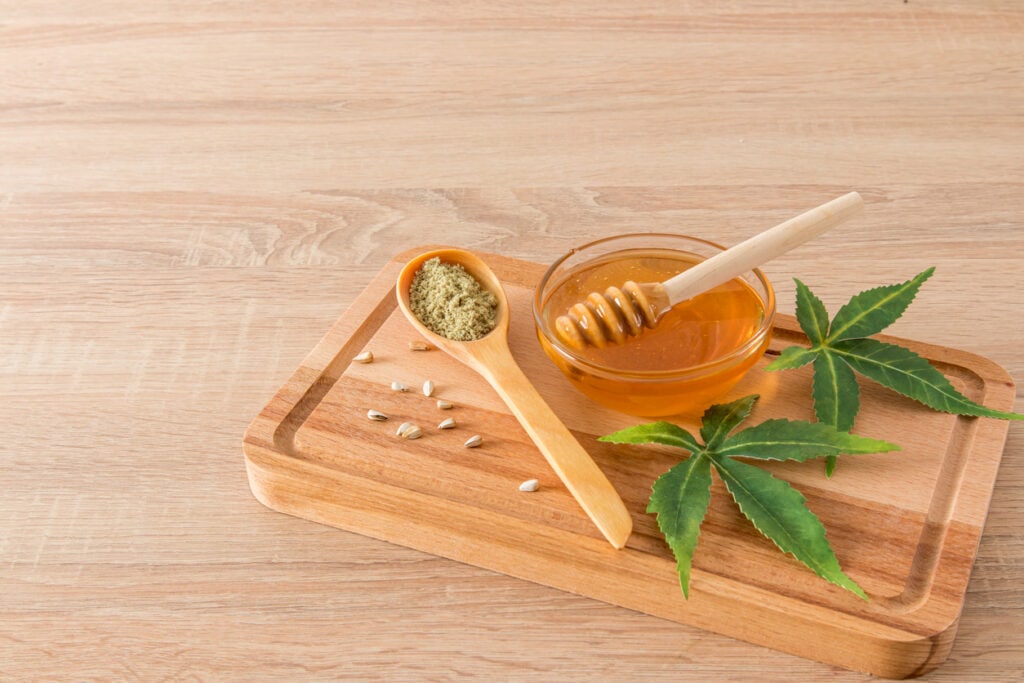
How to Make Cannabis Infused honey
Usually, the most crucial step in making “cannabis-infused anything” is decarboxylating your cannabis buds. Once the weed is decarboxylated, then we are good to make whatever we wish of it.
Decarboxylation is typically the process of treating cannabis with heat for some time until the THC content in marijuana is fully activated. If this is not done, whatever else you do with cannabis is more or less a waste of time.
Marijuana is not psychoactive until it is heated, which is why when you're smoking or vaping the substance, the heat activates the psychoactive substance. That, in turn, gives you the “high” effect you get. Otherwise, it is just as simple as chewing on empty weed.
During decarboxylation, what essentially happens is that the THCA molecule in marijuana is converted to THC (tetrahydrocannabinol), which is the substance responsible for the “high” effect of cannabis.
But since we're not lighting a big fat doobie, we need to decarb manually to achieve what we want. However, note that the decarboxylation process is mainly dependent on very low heat and prolonged exposure to heat to ensure the process is successful.
If too much heat is applied, the terpenes and THC can be rendered powerless, and as such, we'll need to get new cannabis buds. Decarboxylation takes place in two simple steps:
- First, preheat your oven to 240°F. While the oven is still getting hot, you can spread the marijuana out on the baking tray or sheet. The low temperature of 240°F is typically best for heating the marijuana buds. Anything above this will likely vap[orize the terpenes and destroy the THC in the material. Of course, it takes less time to decarboxylate your cannabis at a higher temperature, but that would defeat the purpose of actually decarbing.
- Secondly, bake the cannabis for about 40 minutes inside the oven. During this process, you need to keep stirring the cannabis gently at intervals to ensure that all of it cooks evenly and adequately.
Once this is out of the way, the next thing is to start making your cannabis-infused honey.
Cannabis Honey Recipe
As with the previous step, this is also quite simple and straightforward. However, before we get into the description of what to do, here's a list of the essential materials you need to begin with.
- A slow cooker or a crockpot
- 15g of best marijuana buds that have been decarboxylated as described above.
- About 2-3 cups of honey
- Grinder to grind the cannabis (the cannabis must be ground coarsely before it is decarbed)
- A stirrer
- Cheesecloth or strainer
- A canning jar with a lid
Note: An ideal ratio for mixing the honey and cannabis would be 7.5g of cannabis for every cup of honey.
Directions for Cannabis Honey Recipe
Begin by wrapping the decarboxylated cannabis in the cheesecloth and tie it up with a small string. Next, put the cheesecloth inside the canning jar and measure two cups of honey into the jar.
With the content (cannabis and honey), place the jar inside the crockpot or slow cooker, seal it up, and place it on the stove.
Ensure that the heat is set to low (preferably, 240-250°F), and the time is set for 8 hours of uninterrupted cooking. But you need to stir the pot's content every few hours to ensure even distribution of heat and avoid build-up of pressure inside the jar.
After 8 hours of cooking, you can turn off the heat and let the pot cool. To make the cooling process faster, you may remove the lid of the cooker.
Watch out for the heat, though. Remove the cheesecloth from inside the jar and squeeze out the golden stuff – as much of it as you can. You may discard the cheesecloth or use it to steep tea in a different cup.
Finally, your cannabis-infused honey is ready for consumption. And that is our cannabis honey recipe. You can put it inside the refrigerator and take it out only when you need one.
FAQs about Cannahoney
#1 Will cannabis-infused honey get me high?
The answer to this can be a yes or a no, depending on the circumstances. For instance, there are several different kinds of marijuana strains, each with varying potency levels. You can be sure of getting stoned if the infused cannabis in your honey is potent.
The honey mainly serves to make it appealing to people who do not like smoking it. It does not contribute to the psychoactive nature of cannabis.
Ideally, if your cannabis strain contains a high THC level, you can be pretty sure of getting high. But if the CBD level is a bit high, it will likely inhibit the constituent THC's effect. In essence, the higher the THC, the more likely you are to get high.
#2 Will cooking with cannahoney produce an odor?
Usually, little to no odor is noticeable from inside the mixture when cooking. As long as the cannabis was decarboxylated correctly before combining it with the honey, it will not smell.
#3 For what purposes can I use cannahoney?
Cannahoney is a delicious and healthy way to consume cannabis, as it somehow nearly eliminates the taste of weed from the entire mixture. The type of Cannabutter you use entirely depends on the situation, i.e., what you want to achieve. For edibles, Cannabutter or cannaoil is a great choice.
But for cannahoney, you can use it as a sweetener in place of sugar. You can also use it in beverages, for your tea, as a glaze for grills, and for eating other snacks at home.
When it comes to putting your cannabis-infused honey to use, the choice is completely yours – you're free to do what you please with it.
CBD products are all the rage nowadays. More people are resorting to natural CBD products to relieve pain and inflammation. As research about CBD or cannabidiol benefits becomes more evident, the restrictions on consuming CBD products are being dropped. One of the newer and effective ways to consume CBD is through hemp honey sticks.
What Are Hemp Honey Sticks?
Hemp honey sticks are sticks or straws that contain CBD hemp oil extract and honey inside them. Honey has long been known for its health benefits.
It is a superfood made by bees that is sweet and syrupy. Honey is used to sweeten recipes, and it is consumed for its antioxidant, antimicrobial, anti-inflammatory, and anticancer effects. Honey is an excellent carrier substance for CBD oil.
CBD oil is an oil that is derived from hemp or cannabis plants. CBD or cannabidiol oil contains cannabinoids that have certain health benefits to the body. Cannabinoids have the ability to latch on to brain receptors and reduce pain in the body. This is why people like to use CBD products for pain and inflammation.
How to Use CBD/Hemp Honey Sticks
CBD honey sticks are synonymous with hemp honey sticks. The sticks or straws have honey mixed with CBD hemp oil in them. The combination of honey and CBD hemp oil helps people to consume CBD oil in a tasty way.
Some people may take CBD oil directly, but it to others tastes bitter and unappealing.
That is where hemp honey sticks come in. They include the healing properties of both CBD and honey in one food supplement.
Are you wondering what to do with honey sticks? All you have to do is squeeze out the syrup inside. You can add it to your coffee, smoothie, or tea.
Or, if you need a quick boost of energy, you can just squirt it directly into your mouth. That’s how easy it is to reap the benefits of both honey and CBD oil.
Will Hemp Honey Sticks Get You High?
To answer this question, we need a lesson on cannabis. Cannabis or marijuana contains many active compounds, but the most commonly known ones are THC and CBD.
THC or tetrahydrocannabinol is a plant compound found in marijuana that makes people high when smoked or ingested orally.
In CBD honey sticks, THC content is usually zero or less than 0.3%. While a weed joint contains both THC and CBD, it is possible to isolate only the CBD into an oil. That is how pure CBD oil extract is made.
CBD doesn't make one high because it doesn't have psychoactive effects. So, you can be sure to enjoy your CBD honey stick without worrying about hallucinating like a weed smoker.
However, you will feel the therapeutic effects of CBD, such as pain and anxiety relief.
How Much CBD is in a Honey Stick?
The ratio of CBD to honey in one stick will range from 1:10 or 3:10. It depends on the hemp honey stick you are buying.
Usually, you can look at the product details to find out how much CBD is in the honey stick. The amount of CBD in one honey stick is minimal and will not cause any adverse effects on your health.
How Many Hemp Honey Sticks Should I take in one day?
If you are wondering about your CBD dosage, then remember this: always start with very little at first. This will help you to study your body's reaction to it. That said, you can take 10 to 20mg of CBD in one day. Essentially, you can take half a stick to 2 sticks in one day.
Check the nutrition label on your CBD honey sticks package and determine how many sticks that will be.
How Long Does it Take for Hemp Honey Sticks to Work?
You will start to feel the effects of CBD honey sticks in as little as 15 minutes. But this can vary. There are many reasons why CBD may not take effect as quickly for some people. These factors include metabolism, activity level, and genes.
Benefits of Hemp Honey Sticks
Hemp honey sticks pack a healthy punch – both honey and CBD have significant health benefits to offer users. Let's take a look at some of them below.
- CBD honey sticks contain antioxidants that may reduce heart attacks, strokes, and some types of cancer.
- CBD sticks can help lower high blood pressure.
- CBD honey sticks can reduce cough and treat sore throats.
- CBD honey sticks can help to reduce pain and inflammation in the body.
- CBD honey sticks have cannabinoids that can help reduce anxiety.
- CBD honey sticks may help with reducing insomnia and improving sleep.
- CBD honey sticks may benefit heart health.
Side Effects of Hemp Honey Sticks
Hemp honey sticks are generally well-tolerated by most people. However, there are always people who are allergic to either honey or CBD oil. Users have reported side effects such as:
- Diarrhea
- Nausea
- Changes in appetite
- Dry mouth
- Fatigue
Some studies report that high amounts of CBD may affect liver function.
Hemp honey sticks are a great way to reap both honey and CBD oil benefits in an innovative way. You can choose to squeeze your hemp honey stick into your morning coffee to get a boost of energy for your day ahead. CBD honey sticks may also help with lowering high blood pressure and pain relief.
Honey has always been around for awhile and has been used by many households around the world. It is used to make a number of products. How can you benefit from CBD honey, though? Let's explore.
The medical marijuana industry has embraced CBD honey. You can make your own at home and not need to rely on cannabis businesses to stock it.
While honey is sweet, CBD honey is not just a delicious treat, but offers medicinal benefits for different ailments. There are different ways to use this product. Let us take a look.
Using CBD Honey
CBD honey can be substituted for sugar that you use in recipes. You can use it to make a sports drink, especially for when you have done a long workout. It will help bring relieve to sore muscles.
You can also use it to make tea sweetener, caramel sauce, cough syrup, peanut butter, salad dressing, dark chocolate, marshmallows and more.
If you suffer from specific ailments, what better way to consume CBD honey, but in a cup of tea? In other words, it gives you that extra help for your health.
Cough Syrup With CBD Honey
To make cough syrup using CBD honey, all you need is a cup of water, ginger, marshmallow root, and cinnamon. You put everything in a saucepan and bring it to a boil and then simmer it.
Use a cheesecloth to pour out the water and strain the remaining herbs; after which you would cool it. Then put it in a canning jar, securing it with a lid and storing it in a refrigerator.
CBD honey has a wide range of benefits. It can relieve and alleviate acid reflux. Use one teaspoon each day and feel relieve from your acid reflux. In addition, it is safe to use and will soothe the stomach. If you have a hangover, CBD honey is a good option to help ease symptoms.
“
There are over 300,000 jobs in the cannabis industry. CTU trained me for one of them!

Makes $24.50 @ THC +
You only need to consume a small portion to break down the alcohol into byproducts that you would eventually pass out through the body.
You can use it to make topical creams for cuts and abrasions. All you would need is a small portion to put on the skin for antibiotic benefits. If you suffer from allergies, CBD honey could help to relieve this. It is especially good for seasonal allergies.
All you need is a tablespoon each day to get the best results. Have you ever had a minor burn? Well, CBD honey can help to improve the irritation and speed up the healing time.
It can only be used for first degree burns.
Additional Benefits of CBD Honey
You can use CBD honey on acne. It helps with the inflammation. You can also use it to cleanse your face and other areas of the skin.
It won't strip your skin, but it will control and stabilize sebum production to give clearer and healthier skin. If you have dry skin, gingivitis, stomach ulcers, sore muscles and menstrual cramps, CBD honey is very useful in providing relief.
Go to the Cannabis Training University to explore our online cannabis courses and become a Master of Marijuana today!
To learn more about how to put your cannabis to use, either as a budtender or a cannabis enthusiast, simply go here and enroll in any of Cannabis Training University's online programs.

Karen Getchell
Karen gained expertise in developing training programs and technical documentation as a Senior Editor at Cisco Systems. She began her journey in cannabis as a patient, searching for a way to heal herself. When she perfected a method for making cannabis oil, other patients began to seek her out. An early adopter of CBD medicine, she started her CBD-infused-products business in 2014. Over the last two decades, Karen has taught hundreds of patients and caregivers how to select strains, infuse oils, and extract cannabinoids.
When she isn’t teaching cannabis cooking classes, Karen works as a cannabis business consultant, writes for online cannabis publications like Cannabis Training University, Leafly, and Weedmaps, and runs a CBD-infused-product business.


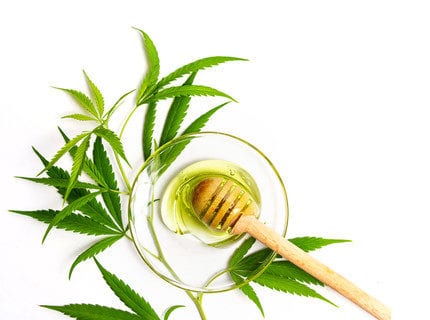



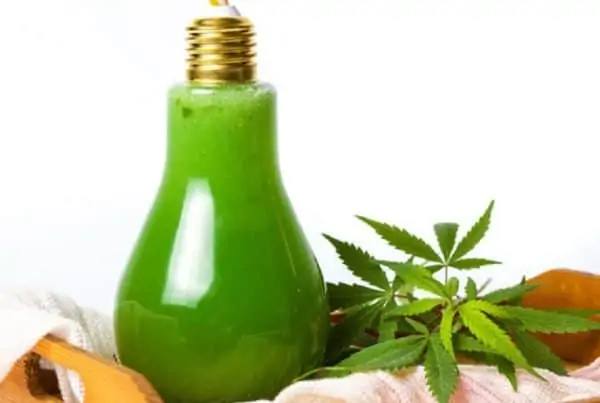
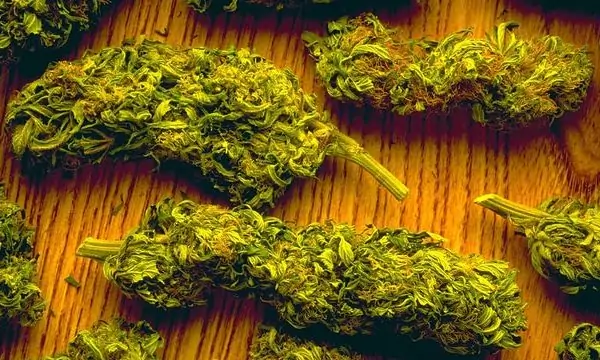
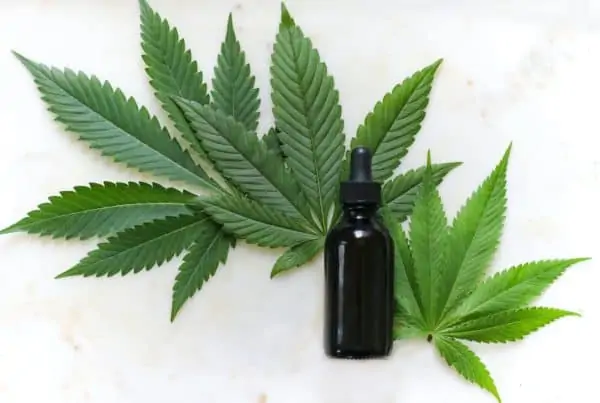
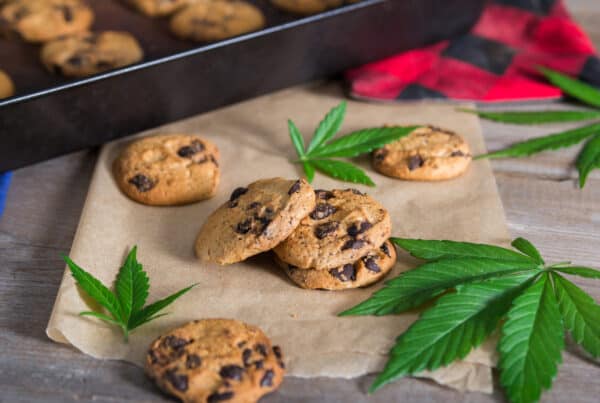
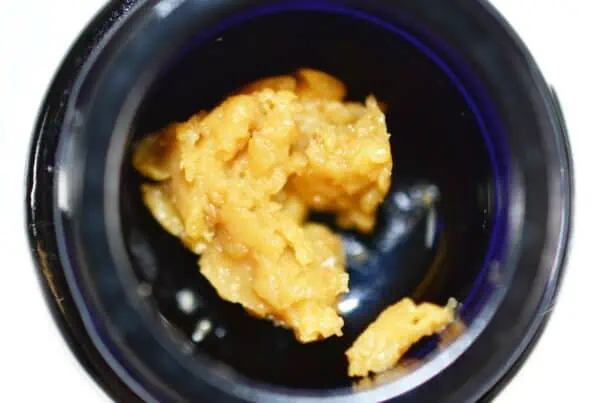

 Jeff was involved in an accident where he endured a traumatic brain injury. He had a week-long stay in ICU where brain surgeons
Jeff was involved in an accident where he endured a traumatic brain injury. He had a week-long stay in ICU where brain surgeons  100% risk free money back guarantee within 48 hours after purchase if student has not completed any of the courses or exams.
100% risk free money back guarantee within 48 hours after purchase if student has not completed any of the courses or exams.